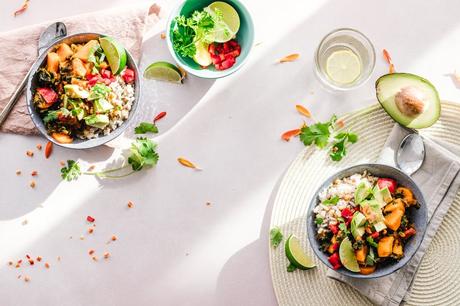Do you ever ask yourself whether vegan foods offer all the required nutrients for growth and development? Well, this is a question worth addressing since a large number of people continue to go vegetarian. If you consume meat or meat products, you might wonder what nutrients vegetarians miss every day! With all the talks and daily campaigns about why you should always balance your diet, it is essential to understand how vegetarians stay healthy.

Protein
You may think that balancing a meal requires additional dairy products like eggs or meat to supply enough proteins to the body. However, vegetables such as broccoli and spinach contain protein and can provide suitable alternatives for vegan proteins. Pulses are among the best protein foods for vegan menus, and they should make a daily appearance in your meals so that you can meet the daily body protein requirements.
Most vegetables contain proteins and require creativity in developing a perfect meal combination. It does not always have to be solid foods; sometimes, you may need to add chia or pumpkin seeds to make healthy summer smoothies rich in proteins. Therefore, it is easy to add protein components to a vegan meal just as it is to prepare bacon during breakfast!
Iron
You may also be wondering whether vegetable foods can provide iron since animal foods are commonly known for providing this vital nutrient. Well, yes, several vegetables provide enough iron required in the body. Broccoli, sweet potatoes, and spinach have high iron components and should be frequently consumed in vegan meals.
Therefore, if you were worried about missing out on meat-based iron, this should encourage you to consider plant-based iron.
Zinc
Zinc is another nutrient essential in several body functions, and it is not provided by animal-based products only. Eating vegetables can also give enough zinc nutrients. Grainy vegetables such as beans and seeds are rich in zinc and should be included in a vegan meal. Soy and nuts also provide zinc, and these can be used in preparing vegan desserts or breakfast meals.
Vitamins
Eating a balanced and nutritious diet is one of the ways to maintain good health. Vitamins are crucial to your healthy body, and they should be integral in your meals.
Fruits are known for their continuous supply of vitamins that protect the body against infections and diseases. They form the main vitamin ingredients in a vegan diet. Should you choose to go vegan today, be rest assured, you’ll have to find a way of preparing a tasty vegan meal with a fruit component! Vegetables are also rich in vitamin A and vitamin C.
Calcium
Leafy green vegetables, pulses, and bread are essential sources of vegan calcium. Your body requires vegan calcium for the strengthening of teeth and bones. Fruits such as dried apricots and raisins are also rich in calcium and are usually added in a dessert for a vegan meal. For dried fruits to not cause effects on the teeth, they have to be eaten during meals and not snacked. However, vegans prepare different dried fruits to be added to thick drinks such as yogurt.
Conclusion
Vegan foods can make a balanced diet rich in vitamins and even fiber. You should positively embrace it as a healthy food choice. All the nutrients provided by animal-based food components can be wholly obtained in vegetables. If you want to become a vegetarian and are seriously interested in the nutritional constitution of vegan meals, you can check out the FDA website for more information. The link will also work well for vegan members who want to spice their menus with new entrants.
Thank you for reading!


